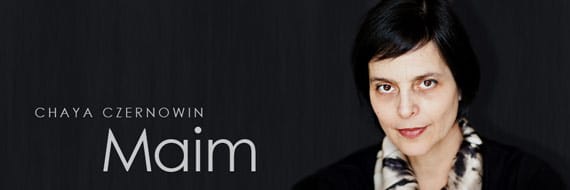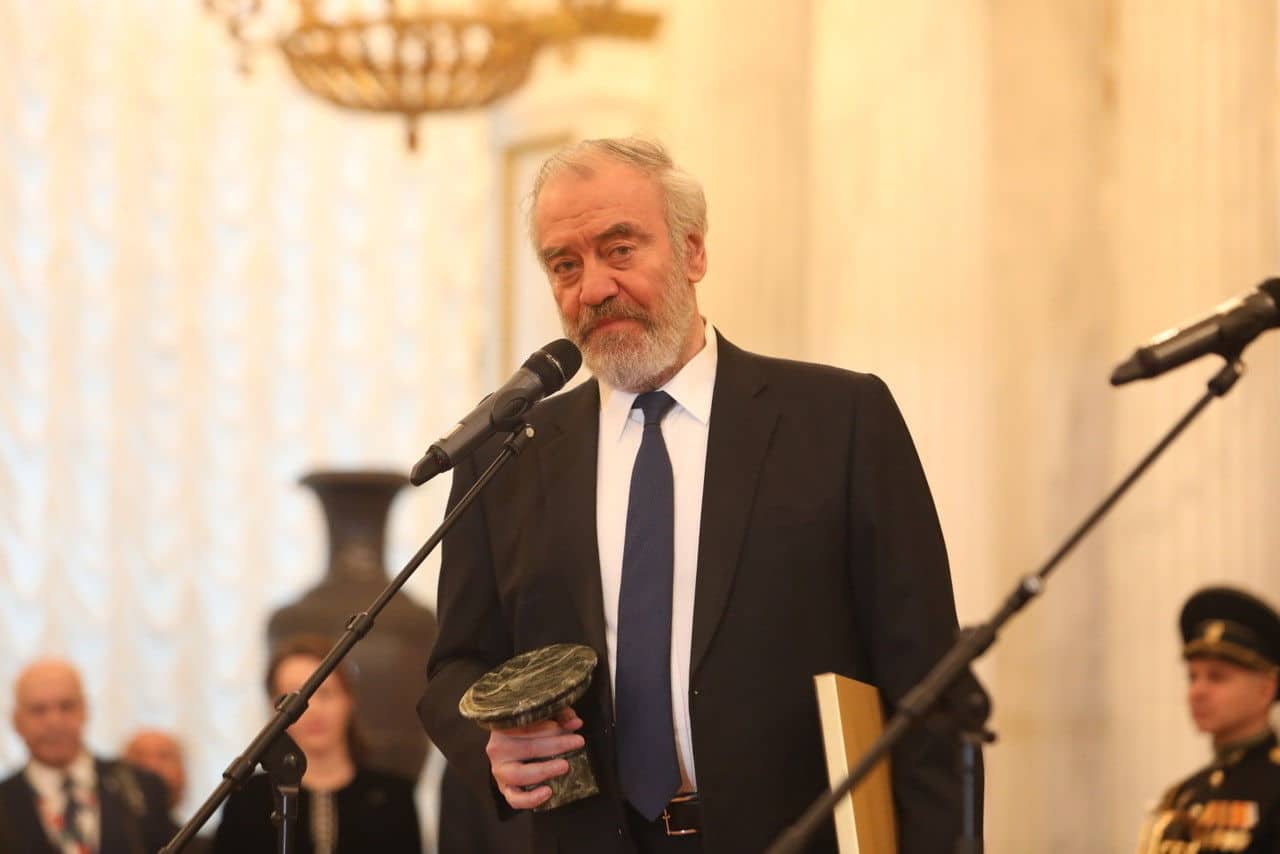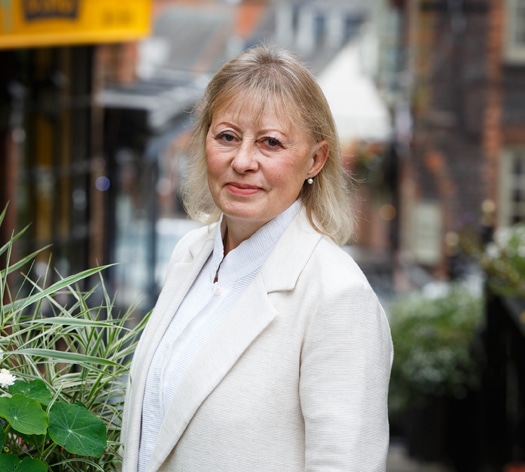Do we still need a special prize for women composers?
mainThe Heidelberg composing prize for women has been won this year by the Israeli Harvard professor, Chaya Czernowin.
We congratulate her.
Past winners include Saariaho, Neuwirth, Unsuk Chun and Iris ter Schiphorst, all well established and moderately well known, some of them even beyond the lily-pond of contemporary classical music.
Professor Czernowin has salaried security at Harvard. She has been composer in residence at the Salzburg Festival. She has a publisher and her works get performed.
The Heidelberg prize for women composers has been running since 1987. The prize money is a paltry 5,000 Euros. Maybe it’s time to lay it to rest as a 20th century anachronism.






Apologies for being pedantic, I know it’s just a typo, but it’s Unsuk Chin not Chun.
But in answer to your question: Yes.
It might interest you to know that those – in your words – “paltry 5,000 Euros” are actually more than most other European composing competitions award the first prize winners. Composing competitions like the newly created Basel Composition Competition with a first prize of CHF60.000 (~ €54.000) are an absolute exception.
Seconded.
This being your blog, the selection of topics and the manner in which they are discussed is naturally your perogative.
I will admit that I was a bit confused as to why you asked the question in the title and used the word ‘anachronism’, given your previous endorsement of a workshop for women conductors and your frequent strictures on the lack of women conductors and composers in the classical music realm.
Given the fact that female composers have only been allowed to come out of the woodwork for some 50 years, which is really very short in relation to the rest of music history – in spite of exceptions like Hildegard von Bingen, Clara Wieck and Fanny Mendelssohn and some really busty Aunt Augusta types having to battle against male bias, there cannot be enough measures to stimulate composers from the charming gender. It is very strange, if you think about it, that we accept as normal novels and poetry and painting being produced by women and that composers are still supposed to be predominantly male (in spite of some really feminine types like Debussy and Chopin). The mind that creates music is not ‘masculine’ at all, and includes much ‘feminine’ talents like intuition, sensitivity, imagination.
It will be another matter, of course, if we talk about sonic artists, like Olga Neuwirth: many of them hammer it in with an ardour hardly possible to be equaled by the male competition.
PS: I wrote the above innocently, and thinking of composers and discrimination. But this lady is a sonic artist who needs extensive manuals to elucidate the production techniques of ugly and entirely pointless sounds – effects without a cause – because she cannot invent anything interesting with ‘mere’ notes and tones for which the instruments had been designed. She should not be awarded a music prize but be sentenced to pay that amount.
http://www.youtube.com/watch?v=dOYDkohmta8
I heard a piece by Olga Neuwirth when I was in Vienna last year called “Clocks Without Hands”. The Vienna Philharmonic played it and Daniel Harding conducted. As I watched and listened I remember thinking what phenomenal musicianship had made it possible to strike some kind of a tempo so that the orchestra could play with a semblance of unity. I wrote this at the time, on a music board:
“Tonight’s performance with the Wiener Philharmoniker took place at the Konzerthaus. The first item on the program was a “commissioned work” called “Clocks Without Hands” by Olga Neuwirth. Hats off to the magnificent orchestra for making sense of this cacophonic assemblage. The percussionist took centre stage, as it were, with a variety of instruments at his disposal, including the ticking clocks.
I was giggling to myself because the percussionist seemed to frantically run from one instrument to another – drumsticks (large and small), triangle, glock, large bass and smaller timpani and ticking clocks. He reminded me of a cook in the kitchen on a TV show when all the pots are boiling and the food is burning; then he turned over the score and I laughed (to myself, naturally) because that finally was ‘the cookbook’!!! Now the rice….now the oven….now the beating of the eggs…..now the kneading of the dough…moving from here to there and back again as each ‘dish’ boiled out of control!!”
Seems perfectly coherent to me. A major music-directorship is important, meaningful and potentially influential. A tokenistic competition rewarding already-established figures with a desultory prize achieves little.
Remember when composers didn’t need to get a PhD, or to study math or engineering, or get tenure, in order to be legitimate?
Remember when composers were “merely” extraordinary musical people with extraordinary musical gifts?
Remember when composers didn’t need to explain their process (itself worthy of a doctoral defense)?
Remember when composers didn’t need prizes as seals of approval that what they wrote was indeed “music”?
Herr Doktor Professor Wolfgang Amadeus Mozart, BA, MA, Ph.D., Honorary PhDs from MIT and CalTech.
Interestingly, since professional education institutes were set-up to provide a basis for, among other musicians, composers, that does not seem to have been very successful: Berlioz and Mahler getting into trouble, Ravel failing the Prix de Rome, Debussy winning it but cultivating a profound dislike of any academia all his life. Composers never ‘enjoying’ institutionalized education: Haydn, Mozart, Beethoven, Chopin, Schubert, Brahms, Wagner, Strauss, Stravinsky, Schoenberg. And of course, earlier composers lived in times when such institutions did not exist. Bach and Handel did not need them, anyway.
Nowadays composers’ diplomas and prizes seem to merely function as marketing tools for selling an unwelcome product, like encyclopedia sellers at the door.
“Remember when composers were “merely” extraordinary musical people with extraordinary musical gifts?”
Good set of questions, Cherrera, especially this one. I’m happy to tell you that I do remember, because I live with one. She just won (a tie, to be accurate) the 2016 Latin Grammy for Best Classical Album – playing, composing and improvising all on one disc.
On March 20th you can come to the Gewandhaus, Leipzig, to hear the world premiere of her 1st Piano Concerto, in which she will also be the soloist. I can tell you that you will be tapping your feet, not reaching for the calculator!
I will let you research her name, for fear of the tide of “self-promotion” accusations that will short-circuit Norman’s blog should I dare to write it here. Hope you can come…!
That premiere seems to be part of a more joyful occasion than the painful acustical nihilism inflicted by female frustration.
Super talent she is. A premiere well worth attending!
That sounds wonderful indeed. And Leipzig; very impressive. However, I was at the Gewandhaus in March last year – Kavakos in Sibelius Violin Concerto. I was tapping my foot and received the filthiest look of disapproval from the woman sitting next to me. It was a horrible experience because I’d travelled all the way from Australia to go to that concert (and others). I looked away and tried not to let it bother me, but it definitely stung.
I always eager to discover new composers so I listened to the fragments on Ms. Czernowin’s website. Interesting sound effects, but I wouldn’t go so far as to call organized noise “music.” I wish there was a word in the English language to categorize her style, which dispenses with rhythm and time and structure. Everything sounds random and the organization is not apparent to the listener. “Sonic landscape” perhaps. The audience in Heidelberg seems to be made of tough stuff, having had to endure worse throughout the years. Pity that some audiences have to suffer as the rubbish bin for contemporary music: commissioned works that never receive a second performance…
‘Sonic landscape’ would do, and ‘landscape’ could be dropped because it does not add something insightful. The German language has already found an appropriate word for this art: ‘Klangkunst’, sonic art, or sound art. The difference with music is, that sonic art does not attempt to create an ‘inner space’, a dimension created by relations between tones, where energies can form a flow, or a narrative, and which can communicate some emotional / psychological character which can be shared by the audience. Sonic art can produce interesting or pleasant patterns – at best; and at worst experiences which can be compared to dentistry without anaesthetics. An entire ideology has been built around sonic art to justify it as a normal development of contemporary music, while it would have been much better to have claimed a separate territory where it won’t be compared to music. The confusion around what is what, is still harming music life, and also the circles of sonic art because of the fighting over priorities of funding and programming.
I always think it is straight ‘sound design’ of the type one experiences in the cinema. And this ‘sonic’ art you describe just reminds me so much of the hippy generation when people sat around in smoke-filled rooms completed zonked out of their minds. Music it is not.